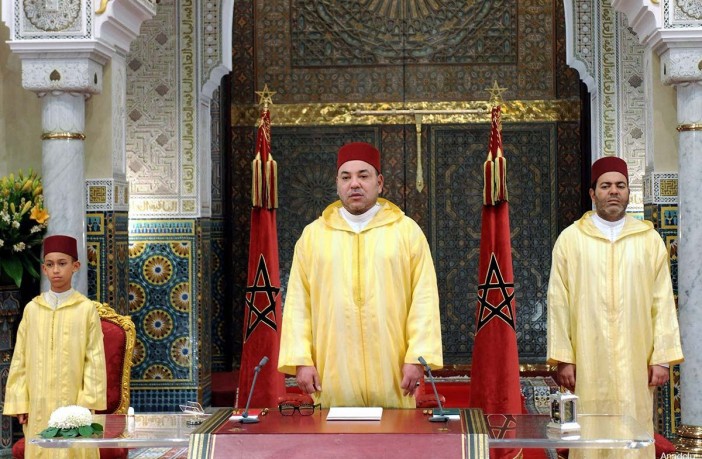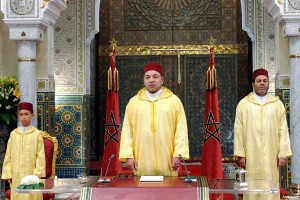Middle East Monitor
Abderrahim Chalfaouat
@chalfaouat
The third commemoration of the Rabaa and Nahda massacres forces us to revisit two issues, at least. The first is the international community’s phoney treatment of a bloody military coup. Hundreds were killed in civilian sit-ins that demanded ballot box respect, while influential countries rushed to justify the crime.
The second is the trails the Arab Spring advocacy has taken in different countries. Armed conflicts, torture and expulsion – with international and regional intervention – characterise Syria, Libya and Yemen, while the military iron fist grips Egypt.
Tunisia, though different, faces security challenges and difficulties in building long-term consensus. This backlash of long-standing dictatorships and one-party regimes in the region requires time to heal. The Moroccan case gives signs of a different story.
Distinction in the current Moroccan experience started when Moroccan youth refrained from demanding the ousting of the regime. Meanwhile, some anti-regime social groups, such as the Islamist Justice and Spirituality (JSO) party and the radical left, both visible in sit-ins, refrained from revenge. Counter to their pro-revolution literature and discourse, they took a step back in 2011. Leftists, weakened after the 1998-2002 transition, did not prioritise revenge either.
The second element was the monarchy’s quick response to street demands. Two weeks after youth activism had started, the King of Morocco Mohammed VI launched constitutional amendments giving more powers to the government and recognising the role of civil society. The third component is that the Islamist-led government – despite differences in ideology and programmes – has completed the whole mandate, unlike similar experiences in the region, with a mix of successes, difficulties and concessions.
Thus, Morocco has avoided the quagmires some other MENA countries witness due to the 2011 reform promises, mobility from within the elected bodies, the increasing public interest in politics, the margin of freedom of speech, and the increasing trust in the value of the ballot box. This shared course forms a strategic narrative that has shaped post-2011 political discourse.
However, Morocco needs to keep faith with this experience in forthcoming elections for a number of reasons. First, regression will upset the peoples, politicians, journalists and academicians in the region who have admired the experience. Many view it as a gleam of light that investing in stability can generate democratisation. The second is to maintain local and foreign political and economic actors’ trust. The third is to extend the positive mood accompanying the ‘change under stability’ reform approach, while the fourth is to free Moroccan diplomacy from the hurdles internal conflicts impose, especially as Morocco is facing increasing instability with neighbouring countries, some international organisations and key international powers. So, the importance of the experience legitimises fear from regression in the forthcoming elections.
Giving up that experience will send alarming messages in different directions. For the international eye, democracy will look unfit for the region. The local culture may equally be accused of banishing a liberal exchange of power. Even worse, decision-making in the country may seem monopolisable in the absence of internal democracy. Furthermore, corruption and despotism’s return in the coming elections will mean the impossibility of progress and development without huge setbacks, and that political interaction is doomed to regression.
Political actors doubt the continuity of the post-2011 democratisation process due to the recent despotism. For instance, while the Party for Authenticity and Modernity (PAM) presents itself as the country’s saviour from a feared collapse, its leaders forget that the party supported pre-2011 despotism. The party started with three private electoral candidates in 2007 then had a whole parliament team a few months later, after encouraging MPs from other parties to join them. Despite its limited representation and being in opposition, in 2009 the party managed to assign a minister who implemented the Emergency Plan to reform the educational system, notorious for corruption.
Meanwhile, PAM Secretary-General Ilyas El Omari promised, as a leftist, to wage war on Islamists. He simultaneously provoked Islamists and the left. That is why left leaders keep reminding Moroccans that PAM is a deep state party which does not represent their ideology. PAM, which draws power from links to the administration, makes big promises though it lacks a clear structure, apparent in how its secretary-generals are elected.
El Omari seems certain to win the elections, though his party neither offered strong opposition –with clear alternatives – nor participated in the current government to present the outcome and promised rectifications in the October campaigns.
In fact, this surreal combination of trust with unpreparedness humiliates the role of parties in the political fabric. By being an administrative proxy, PAM foreshadows the return of the blurring of the lines between political institutions. That is, royal activities may become part of the government programme, as was the case before 2011.
Furthermore, corruption in such cases as the “state servants” amplifies doubt in the continuity of the post-2011 process. State and administration officials have benefitted from land which is too cheap, while the public roared against the corruption, to no avail.
For hope in a genuine democracy to continue, the political class today needs to refute deviations from democratic procedures. It, thus, not only legitimises its presence but also sends a gleam of light to the region that stability can generate progress, reform, democratisation and the free exchange of power.








